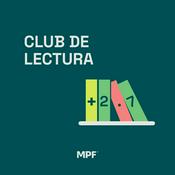Episodios disponibles
5 de 28
- Episode 28 – Toward Mutual Liberation: The Conclusion of The Second SexWelcome to the 28th episode of our show, The Second Sex, where we continue our journey through Simone de Beauvoir’s groundbreaking analysis of women’s lived experience and its lasting impact on feminist thought. In this episode, we turn to the Conclusion, covering pages 848 to 863.In this final chapter of The Second Sex, Simone de Beauvoir brings her monumental work to a powerful close by emphasizing that the conflict between men and women is neither natural nor eternal—it is the result of historical oppression and structural inequality. She dismantles the notion that women are inherently passive or inessential, revealing how society has imposed this position upon them.Beauvoir argues that true liberation for women lies not in rejecting their femininity, but in reclaiming their freedom to transcend, to act, and to define themselves outside of patriarchal constraints. She envisions a future in which the struggle between the sexes gives way to a mutual recognition of freedom, where authentic relationships can emerge based on equality rather than domination.This concluding reflection is both a call to action and a vision of hope—a declaration that liberation is possible, and that in striving for it, women and men alike can move beyond roles and towards a shared human project grounded in freedom, dignity, and reciprocity.--------19:33
- Episode 27 – The Independent Woman: Freedom, Work, and the Weight of the WorldWelcome to the 27th episode of our show, The Second Sex, where we continue our journey through Simone de Beauvoir’s groundbreaking analysis of women’s lived experience and its lasting impact on feminist thought. In this episode, we turn to Chapter 14, The Independent Woman, from TOWARD LIBERATION section covering pages 812 to 847In this profound conclusion to Part Two, Simone de Beauvoir turns her attention to the figure of the independent woman. While acknowledging the progress achieved through legal rights and civic recognition, Beauvoir argues that economic autonomy through work remains the cornerstone of genuine female liberation. Yet, the reality is far from ideal—working women often find themselves exploited within capitalist systems and simultaneously weighed down by enduring domestic expectations and social roles.Beauvoir dives into the psychological and existential tension experienced by emancipated women who must navigate the narrow space between authentic self-realization and societal pressures to conform to idealized femininity. She exposes the double bind: professional ambition is often punished or diminished, while personal fulfillment through love is complicated by historical inequalities and gendered power dynamics. Sexual freedom, though theoretically available, is laden with moral judgment and emotional cost.Ultimately, Beauvoir underscores that true liberation will not come until women are not only economically independent but existentially free—able to create, act, and engage with the world without internalizing the gaze or limits imposed by patriarchy.--------19:08
- Episode 26 – The Mystic: Surrender, Salvation, and the Search for TranscendenceWelcome to the 26th episode of our show, The Second Sex. In this episode, we turn to Chapter 13, The Mystic, from the Justification section, covering pages 802 to 811.In this powerful and introspective chapter, Simone de Beauvoir examines the mystic woman—one who seeks transcendence through divine union rather than through love, work, or rebellion. Beauvoir suggests that mysticism often represents a sublimated form of romantic or earthly longing, shaped by a patriarchal society where women are conditioned to find meaning through male figures. She explores how women mystics, denied worldly agency, turn toward God—typically imagined as a distant, masculine presence—projecting their need for validation and purpose onto a divine ideal.Through evocative examples, Beauvoir reveals how the language of mysticism blurs spiritual and erotic boundaries, describing union with God in carnal, even sensual terms. The mystic’s embrace of suffering, humility, and self-annihilation echoes Christ-like sacrifice, yet often becomes a paradoxical means of asserting personal importance. Beauvoir distinguishes between genuine spiritual actors and those whose devotion masks a deeper narcissistic drive for self-affirmation.This episode explores the tension between transcendence and self-erasure, and how even the most sacred quests can reflect the complex interplay of gender, desire, and existential yearning.--------23:25
- Episode 25 – Women in Love: Love as Destiny or DevotionWelcome to the 25th episode of our show, The Second Sex, where we continue our journey through Simone de Beauvoir’s groundbreaking analysis of women’s lived experience and its lasting impact on feminist thought. In this episode, we turn to pages 773 to 801 to explore Beauvoir’s compelling dissection of love and its asymmetrical meaning for men and women.In this episode, we examine Beauvoir’s argument that love is rarely equal between the sexes. For men, love is often one part of a broader life—an experience among others. But for women, shaped by historical dependency and societal conditioning, love can become life itself: a total surrender to a man idealized as a savior or master. Beauvoir critiques this romantic ideal, not as destiny, but as the result of women’s economic and social subordination, which leads them to seek validation and purpose through the man they love. The consequences? Alienation, dependency, disillusionment, and deep suffering. Yet, Beauvoir also envisions a different possibility—authentic love based on mutual freedom and reciprocal recognition, where neither partner becomes the object of the other’s self-erasure.--------28:51
- Episode 24: Narcissism – A Mirror of AlienationWelcome to the 24th episode of our show, The Second Sex, where we explore Simone de Beauvoir’s groundbreaking work and its lasting impact on feminist thought. In this episode, we focus on pages 725 to 772 of the Vintage edition, examining Beauvoir’s compelling analysis of female narcissism.In this chapter, Simone de Beauvoir delves into the phenomenon of female narcissism—not as mere vanity, but as a form of alienation. She argues that in a world where women’s agency is stifled and their value often tied to appearance and approval, many women turn inward, constructing identity around self-image and external validation.Beauvoir explores how the mirror, the gaze of others, and societal expectations encourage this self-absorption. Women may create idealized versions of themselves, seek constant affirmation in relationships, or perform roles for admiration—yet all of this leads to a fragile sense of self, dependent on others rather than grounded in autonomy.Join us as we unpack this thought-provoking section and reflect on its enduring relevance in today’s image-saturated culture.--------20:36
Más podcasts de Arte
Podcasts a la moda de Arte
Acerca de The Second Sex
Explore Simone de Beauvoir’s groundbreaking work The Second Sex in this multi-episode podcast. We unpack her key ideas on how women have been historically defined as "the Other," shaped by biology, culture, and power. With clear analysis and accessible discussion, this series brings Beauvoir’s feminist classic to life—challenging gender roles and redefining freedom and equality for today.
Sitio web del podcastEscucha The Second Sex, Bibliotequeando y muchos más podcasts de todo el mundo con la aplicación de radio.net
Descarga la app gratuita: radio.net
- Añadir radios y podcasts a favoritos
- Transmisión por Wi-Fi y Bluetooth
- Carplay & Android Auto compatible
- Muchas otras funciones de la app
Descarga la app gratuita: radio.net
- Añadir radios y podcasts a favoritos
- Transmisión por Wi-Fi y Bluetooth
- Carplay & Android Auto compatible
- Muchas otras funciones de la app

The Second Sex
Escanea el código,
Descarga la app,
Escucha.
Descarga la app,
Escucha.


































